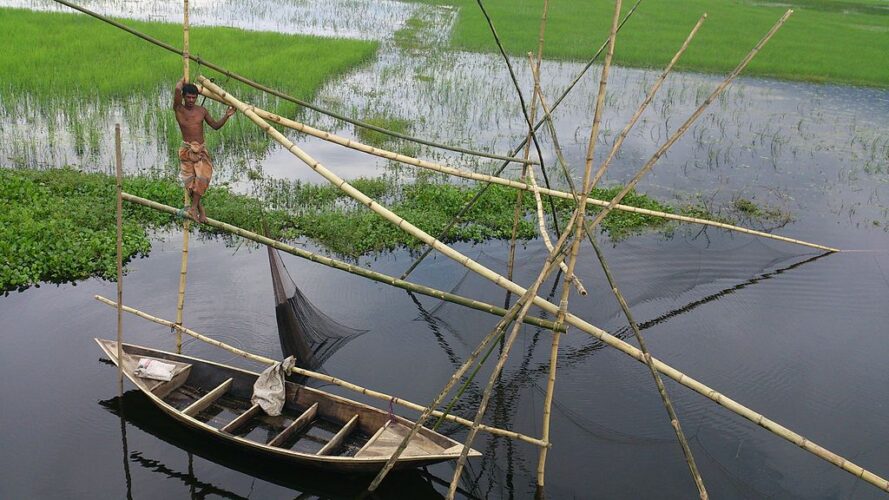(This article is originally published by FAO Regional Office for Asia and the Pacific)
Global fisheries and aquaculture have been hard hit by the COVID-19 pandemic and could face further disruption in 2021 as lockdowns affect supply and demand across the sector, according to a report by the Food and Agriculture Organization of the United Nations (FAO). The report, The impact of COVID-19 on fisheries and aquaculture food systems, was featured during the 34th session of the Committee on Fisheries (COFI) hosted by FAO.
Fish supply, consumption and trade revenues for 2020 are all expected to have declined due to containment restrictions, the report noted, while global aquaculture production is expected to fall by some 1.3 per cent, the first fall recorded by the sector in several years. While food itself is not responsible for the transmission of COVID-19 to people, the report stressed every stage of the fisheries and aquaculture supply chain is susceptible to being disrupted or stopped by containment restrictions Aggregate prices for 2020, as measured by the Fish Price Index are down year-on-year for most traded species. Restaurant and hotel closures in many countries have also led to a fall in demand for fresh fish products.
The FAO report indicated that in aquaculture there is growing evidence that unsold production will result in increasing levels of live fish stocks, creating higher costs for feeding as well as greater number of fish mortalities. Sectors with longer production cycles, such as salmon, cannot adjust rapidly to the demand shifts. Global catches from wild fisheries are also expected to have declined slightly in 2020, as, overall, there has been a reduced fishing effort due to COVID‑19-related restrictions on fishing vessel crews and poor market conditions.
As a result of Covid-19, consumer preferences have shifted. While demand for fresh fish has waned, consumer demand for packaged and frozen products has grown as households look to stock up on non-perishable food. FAO has called for disruptive border restriction measures on trade in food to be minimized for food security. The report called for sectoral and regional organizations to work together in order to manage fisheries and aquaculture during the pandemic, with measures that support job protection and ensure a fast recovery of the sector without compromising sustainability.
The impact of COVID-19 on women, already vulnerable as food producers, processors, vendors and carers, should also be considered with government support provided for women along the fish value chain. Uncertainty continues to dominate the outlook for the fisheries and aquaculture sectors, particularly with regard to the duration and severity of the pandemic.
Photo courtesy: Ibrahim Husain Meraj, CC BY-SA 4.0 via Wikimedia Commons

